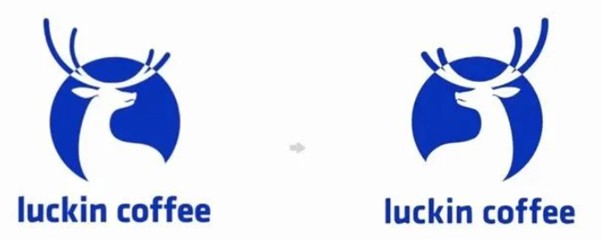Luckin Coffee wasn't lucky in Thailand against copycat
Chinese chain coffee brand Luckin Coffee, which aims to compete with Starbucks and owns the largest number of coffee shops in China, has faced a setback in Thailand due to a trademark dispute.
Luckin Coffee’s distinctive logo features a deer looking to the right with a blue background. From the below comparison, you may easily notice that, except for the direction of the deer’s head, the two logos are nearly identical.

In 2019, a Thai company named 50R Group successfully registered Luckin’s trademark in Thailand and opened a number of coffee stores in the past few years.
The stores copied the design of Luckin, including the store decoration, logo design, coffee cup and handbag, except that the image of the deer in its logo had been flipped.
Below the comparison of the two parties’ shops which are highly similar.


Luckin Coffee soon became aware of this issue. In 2021, Luckin filed a lawsuit before the court in Thailand based on trademark infringement and received a favorable first instance ruling.
In 2022 Luckin Coffee made a public announcement, stating that they had not yet entered the Thai market and the “Luckin Coffee” stores found in Thailand were not operated by the official Luckin Coffee. They also emphasized that such “copycat” stores had caused serious damage to the brand, and they had taken legal action against them.
Despite all the efforts, followed by an appeal filed by 50R Group, in early December 2023, Thailand's Central IP and International Trade Court announced that Luckin Coffee had ultimately lost the case.
Furthermore, 50R Group reportedly claims nearly US$ 2.9 billion in compensation from Luckin Coffee due to its suffer and economic losses from the previous disputes. Luckin responded on Weibo, saying that the news is “to be verified”.
Luckin's loss in the lawsuit can be attributed to Article 63 of the Thai Trademark Law, which stipulates that a Thai company, upon initial trademark registration with the Thai Trademark Office, has the right to operate in the corresponding business in Thailand.
It often happens that a company has limited knowledge about the oversea preemptive trademark registrations, and even with such knowledge, companies oftentimes become aware only after the trademarks have been official registered.
Given the high cost and complexity of enforcing IP rights in foreign countries, as well as the fact that it’s usually difficult for a right holder to provide evidence to prove its reputation in the local market, it is highly recommended for companies which plan to expand overseas to have their trademarks properly registered in the destination countries beforehand and consult professionals to get familiar with local laws as well regulations.


